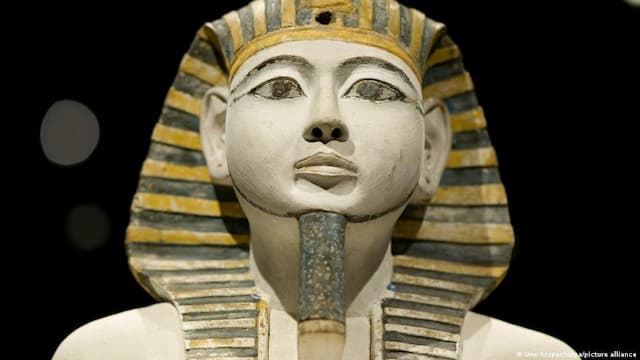How to glorify God?
If God is great, what are we?

We know the chief aim of humanity is to glorify God. But how?
- Do we reflect God’s character in his world, so people see God in us? OR
- Do we tell people to look at God and not at us, since we fall so far short of the glory of God?
Does our connection with God make us great too — God’s handiwork, the image of his character? Or would that approach make us prideful sinners who seek God’s glory for ourselves?
Ask your friends. The answer they give reflects the church division you belong to. But this isn’t a uniquely Christian question. The monotheistic faiths all say, “God is great,” sometimes by contrasting the not-so-great side of humanity.
The Dead Sea Scrolls predate Christianity. The Qumran hymns magnified God by underscoring our worthlessness. Would you sing this?
But I was taken from dust and from clay I was formed as a fountain of filth and obscene shame, a pile of dust and kneaded with water … For You are righteous and there is none to compare with You. So what then is the one who returns to its dust?
As for me, I am speechless. What shall I say concerning this? According to my knowledge I speak. But I am mere spit, a vessel of clay.— 1QHodayota Column xx rows 27-35. Michael O. Wise et al, The Dead Sea Scrolls: A New Translation (New York: HarperOne, 2005), 198–199.
Our song writers wouldn’t take their inspiration from these Essenes, but we do have some of the same tendencies. Many of our hymns, choruses, and worship songs emphasize our sinfulness, our need of forgiveness, our unworthiness, our failures, in order to glorify God. A German theologian even coined a word for it: Niedrigkeitsdoxologie. (See H.-W Kuhn, Enderwartung und gegenwartiges Heil, Gottingen: Vandenhoeck & Ruprecht, 1966, 27).
This approach is counterproductive. Constantly pointing to our failures does not glorify the God who is saving us. It won’t do to say, “Don’t look at me; look at God.” Where is God visible to the world if not in his people? By God’s design, we image him.
Like it or not, we are the community that makes God known. The brilliance of Christ’s reign shows up when the children of light produce what’s good, right, and true (Ephesians 4:8-10). God always intended the church — the people who assemble around King Jesus — be the place where he reveals his multifaceted wisdom to the rulers of this world and the heavenly powers they serve (Ephesians 3:10).
I suspect we find that frightening because we’re so conscious of our inadequacies and we don’t want to sound like self-righteous Pharisees blowing our own trumpet. There is a danger when it’s fake. One of the YouTubes I watched during Covid lockdown was a series of people giving testimonies based on the before/after formula: “Before I met Jesus, my life was a mess …. But now life is wonderful.” While I didn’t know these people, it came across as the gimmicky stories you hear from advertisers like Weight Watchers. A children’s movie might claim, “everything is awesome,” but the truth is that following Jesus in a hurtful world can be a cruciform struggle.
Let’s get real. We’re not boasting about our individual lives. We’re glorifying God by modelling community as God intended it under his kingship (Ephesians 2:9-10).
So let’s quit condemning ourselves. That’s not how we glorify God. Ironically, it’s the Pharisees who seek control by pointing out our failures. They’re like the “accuser of the brothers.” This condemner has no place feeding lines into our worship songs, so let’s lose the niedrigkeitsdoxologie.
We don’t glorify God by demeaning ourselves. There is no condemnation to heap on those who are in Messiah Jesus (Romans 8:1). The Spirit is at work among us, affirming our place in God’s family (8:11-17), supporting us in our struggles (8:18-27).
We glorify our king by being his kingdom, the community alive for God’s honour. You may feel inadequate to the task. You might even feel we’ve been set up — an all-too-visible target in a dark world, like a city on a hill. But where else can people see his brilliant leadership? It’s how we glorify God (Matthew 5:14-16).
Related posts
- Who is the light of the world? (Matthew 5:14-16)
- How do you love God?
Seeking to understand Jesus in the terms he chose to describe himself: son of man (his identity), and kingdom of God (his mission). Riverview College Dean
View all posts by Allen Browne











